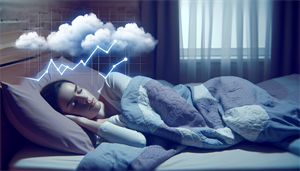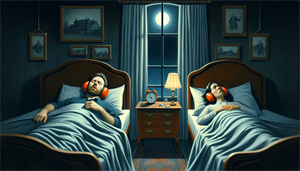Are you concerned that your Adderall medication could be disrupting your sleep or even causing sleep apnea?
This article delves into the relationship between Adderall use and sleep health, exploring how this common ADHD treatment might lead to sleep disturbances and the potential risk of sleep-disordered breathing.
Understanding this connection is vital for managing both ADHD and ensuring restorative sleep, as well as answering the question: can Adderall cause sleep apnea?
Key Takeaways
-
Adderall can disrupt sleep by reducing REM sleep, increasing nocturnal awakenings, and worsening the effects of untreated sleep apnea, thereby negatively affecting sleep quality for individuals with ADHD.
-
Use of ADHD stimulant medications like Adderall may mask sleep apnea symptoms and increase the risk of developing the condition, making careful monitoring and distinction between ADHD and sleep apnea symptoms critical.
-
Effective management of sleep issues in ADHD patients may involve non-stimulant medications, lifestyle adjustments for better sleep hygiene, and a proactive, personalized treatment plan that could include CPAP therapy and monitoring sleep patterns.
Understanding Adderall's Role in Sleep Health
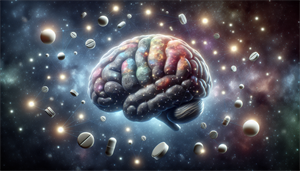
Adderall, a prescription stimulant, is widely used in the management of ADHD. It stimulates the central nervous system and increases the availability of certain chemicals in the brain to help improve focus and attention. But what happens when the sun goes down and it’s time for sleep? How does Adderall impact our sleep health?
Adderall’s impact on sleep health is complex. On one hand, it can disrupt sleep cycles, leading to diminished sleep quality and potential disturbances. This is due to an overabundance of dopamine in the brain, hindering individuals from achieving restorative Rapid Eye Movement (REM) sleep. On the other hand, Adderall can exacerbate sleep-disordered breathing, thereby elevating the likelihood of developing sleep apnea due to its impact on the central nervous system and physiological functions.
Additionally, sleep problems are more common in individuals with ADHD, who are often prescribed Adderall, with as many as 50% potentially experiencing these issues.
The Stimulant Effect on Sleep Cycles
Stimulants, such as Adderall, can significantly disrupt sleep patterns, leading to diminished sleep quality and potential disruptions, which can complicate the treatment of sleep apnea. Specifically, Adderall can have a direct impact on the circadian rhythm, causing delays in the onset of sleep and disruptions that can affect REM sleep, potentially leading to sleep deprivation.
Adderall can have the following impacts on sleep:
-
Reducing the percentage of REM sleep
-
Increasing the occurrence of nocturnal awakenings
-
Resulting in reduced sleep efficiency
-
Worsening the effects of untreated sleep apnea
-
Causing challenges in falling asleep
-
Prolonging the time to fall asleep
-
Reducing the overall duration of sleep
These effects collectively lead to poor sleep quality lack, resulting in negative impacts on sleep quality.
Potential for Sleep Disordered Breathing
Apart from affecting sleep cycles, Adderall can also influence sleep-disordered breathing. It can enhance alertness and decrease the body’s respiratory drive, which could potentially lead to decreased depth of breathing and more frequent interruptions in breathing during sleep.
Scientific evidence indeed suggests a connection between the use of Adderall and an increased risk of developing sleep apnea. The stimulating properties of Adderall can have adverse effects on sleep patterns and quality, potentially leading to disruptions in sleep.
Moreover, individuals who had a history of snoring or potential obstructive sleep apnea during childhood may be at an increased risk of being diagnosed with ADHD or experiencing its symptoms. This suggests that the use of Adderall could potentially exacerbate pre-existing conditions.
The Interplay Between ADHD, Stimulants, and Sleep Apnea
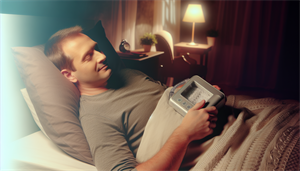
The complex relationship between ADHD, the use of stimulants, and sleep apnea extends beyond the direct effects of Adderall on sleep health. In fact, these three factors are interconnected in a complex way, with stimulant use potentially concealing sleep apnea symptoms and increasing the risk of developing the condition.
Sleep apnea can also exacerbate ADHD traits such as:
-
hyperactivity
-
impulsivity
-
difficulty with focus
-
disruptive behavior in children
These symptoms can be similar to those of attention deficit hyperactivity disorder (ADHD), leading to potential misdiagnosis.
Timely treatments like continuous positive airway pressure (CPAP) therapy can significantly improve sleep quality and help manage ADHD symptoms more comprehensively.
Could Stimulant Use Mask Sleep Apnea Symptoms?
The use of stimulants like Adderall for managing ADHD can make it challenging to recognize sleep apnea symptoms, potentially leading to misdiagnosis or delayed treatment of sleep disorders. Stimulants can induce symptoms such as:
-
severe daytime fatigue
-
morning headaches
-
attention difficulties
-
snoring
While also exacerbating sleep difficulties caused by restless leg syndrome.
Adderall might also mask sleep apnea symptoms by increasing alertness, which can offset the typical drowsiness caused by sleep apnea, and by reducing the body’s urge to breathe during sleep, possibly making sleep disruptions less noticeable. Scientific research indicates a correlation between stimulant use and the concealment of sleep apnea symptoms, suggesting a reciprocal relationship.
ADHD Medication and the Risk of Developing Sleep Apnea
ADHD medications, such as Adderall, may increase the risk of developing sleep apnea. As a result, monitoring the sleep health of patients with ADHD becomes imperative. Stimulant medications such as Adderall can exacerbate sleep apnea by:
-
Enhancing alertness
-
Diminishing the body’s respiratory drive
-
Resulting in shallower breathing
-
Elevating the risk of developing the condition
Furthermore, the prevalence of sleep apnea in patients with ADHD who are on medications like Adderall is estimated to be between 25-30%. The interplay between ADHD, stimulant use, and sleep apnea underscores the need for careful monitoring and management of these conditions.
Treating Sleep Issues in Patients with ADHD

Addressing sleep issues in patients with ADHD involves a complex process that may require a combination of medication and lifestyle changes. Non-stimulant treatment options for ADHD, such as Atomoxetine, long-acting guanfacine, and long-acting clonidine, are available and may actually improve sleep. These medications have the potential to enhance concentration, diminish hyperactivity, and reduce impulsivity in certain individuals with ADHD. Moreover, they are likely to exert a lesser impact on sleep compared to stimulant medications.
Apart from medication, lifestyle modifications can also play a significant role in improving sleep hygiene in individuals with ADHD. Some of these modifications include:
-
Ensuring a consistent sleep schedule
-
Practicing good hygiene habits
-
Incorporating exercise into the daily routine
-
Establishing a relaxing bedtime routine
Non-Stimulant Options for ADHD Management
Non-stimulant medications are seen as a potentially safer alternative for managing ADHD symptoms as they may not worsen sleep apnea. Frequently used non-stimulant medications for ADHD treatment include atomoxetine, long-acting guanfacine, and long-acting clonidine.
These medications function by increasing the concentrations of brain messenger-chemicals (neurotransmitters), including norepinephrine, serotonin, and dopamine. However, they also come with potential adverse effects such as decreased appetite, gastrointestinal discomfort, nausea or vomiting, fatigue, and sleep disturbances.
Nonetheless, non-stimulant medications have demonstrated the ability to enhance concentration and diminish hyperactivity and impulsivity.
Lifestyle Adjustments for Improved Sleep Hygiene
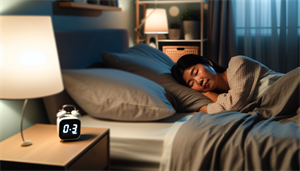
The implementation of lifestyle changes can also greatly enhance sleep hygiene and overall sleep health. Adhering to a consistent sleep schedule can potentially enhance sleep hygiene and overall sleep health. Establishing a calming bedtime routine can aid in signaling the body to wind down, thereby contributing to enhanced sleep hygiene and overall sleep health.
Dietary adjustments can also contribute to better sleep in individuals with ADHD. It is recommended to avoid consuming:
-
spicy foods
-
foods high in fat
-
acidic foods
-
coffee
-
alcohol
-
added sugar
Also, the increased use of technology, particularly before bedtime, may disrupt the quality of sleep for individuals managing ADHD, potentially leading to sleep disturbances and decreased duration of sleep.
Monitoring and Mitigating Risks: A Proactive Approach

The risks linked with the use of Adderall and sleep apnea necessitate a proactive approach for their management. A personalized treatment plan, created with the assistance of sleep specialists, can offer suitable treatment options for addressing sleep apnea, thus enhancing sleep quality and potentially decreasing the reliance on stimulants, such as Adderall, in individuals with ADHD.
Some potential treatment options for treating sleep apnea include:
-
Continuous positive airway pressure (CPAP) therapy
-
Oral appliances
-
Surgery
-
Lifestyle changes, such as weight loss and avoiding alcohol and sedatives before bed
It is important to consult with a healthcare professional to determine the most appropriate treatment plan for your specific situation.
Regular monitoring of sleep apnea symptoms in ADHD patients is essential, as it could potentially impact up to one-third of them. Diligent symptom management is essential to ensure the effectiveness of sleep disturbance treatment, leading to reduced daytime sleepiness and severity of ADHD symptoms.
The Importance of a Personalized Treatment Plan
Creating a personalized treatment plan that considers the individual needs and risks of each patient is vital to ensure the best management of ADHD and sleep apnea. Essential considerations in the development of a personalized treatment plan for patients with ADHD and sleep apnea encompass:
-
Clinical predictors of sleep problems during pharmacotherapy (such as age, pre-existing sleep problems, and medication dosage)
-
Biological and environmental disease-modifying factors
-
The bidirectional relationship between sleep and ADHD
-
The common symptoms shared by ADHD and sleep apnea
-
The lifestyle habits associated with ADHD that can contribute to sleep disorders.
A personalized treatment plan for the management of ADHD and sleep apnea entails:
-
Customizing interventions and strategies to the unique needs and circumstances of the individual
-
Integrating conventional and holistic approaches
-
Concurrently addressing both conditions
Genetic testing is utilized to tailor the treatment plan for ADHD, while actigraphy is employed to evaluate sleep parameters for sleep apnea. The effectiveness of the treatment plan should be regularly assessed to make any necessary adjustments.
When to Consult a Sleep Specialist
Consultation with a sleep specialist can aid in the early identification of sleep apnea symptoms and provide suitable treatment options to enhance sleep health and overall well-being. Early identification of sleep apnea symptoms is crucial, particularly in patients with ADHD. It is important to diagnose sleep apnea in patients with ADHD, as a lack of quality sleep can lead to symptoms associated with ADHD. Misdiagnosis is common, as sleep apnea symptoms can mimic those of ADHD.
Some common symptoms of sleep apnea include:
-
Loud snoring
-
Gasping or choking during sleep
-
Excessive daytime sleepiness
-
Morning headaches
-
Difficulty concentrating
-
Irritability
If you or someone you know is experiencing these symptoms, it is important to seek medical attention and consult with a sleep specialist about a potential sleep disorder. They can provide a proper diagnosis and recommend appropriate treatment options.
Before seeking consultation, it is important for the patient to discuss all medications with their doctor, refrain from using sleep aids or stimulants, maintain a regular routine, avoid consuming caffeine and alcohol, prepare for an overnight stay if necessary, and ensure good personal hygiene. A sleep specialist can aid in the management of sleep disorders through the implementation of various techniques, including reward-based systems for children, morning bright light therapy for adults, and addressing any underlying sleep disturbances.
Summary
In conclusion, understanding the interplay between Adderall, ADHD, and sleep apnea is crucial for effective management of these conditions. From the potential for stimulants to disrupt sleep cycles to the risk of ADHD medications masking sleep apnea symptoms, it’s clear that a comprehensive and individualized approach is necessary. This may involve exploring non-stimulant treatment options, making lifestyle adjustments, and consulting with a sleep specialist. By taking these steps, we can strive for better sleep health and overall well-being.
Frequently Asked Questions
Does Adderall help with sleep apnea?
No, Adderall is not typically used to treat sleep apnea. It is more commonly used to treat ADHD and narcolepsy.
Is there a link between ADHD and sleep apnea?
Yes, there is a link between ADHD and sleep apnea, as around one-third of patients with ADHD may also suffer from sleep apnea, leading to misdiagnosis.
Can Adderall cause sleep issues?
Yes, Adderall can cause sleep issues, with up to 30% of individuals experiencing longer sleep onset and increased insomnia severity with higher doses.
What non-stimulant treatment options are available for ADHD that might improve sleep?
Non-stimulant treatment options for ADHD, such as Atomoxetine, Long-acting guanfacine, and Long-acting clonidine, can help improve sleep. Try consulting a healthcare professional for personalized recommendations.
What are the benefits of a personalized treatment plan for managing ADHD and sleep apnea?
A personalized treatment plan for managing ADHD and sleep apnea can provide appropriate treatment options to improve sleep quality and potentially reduce the need for stimulants in individuals with ADHD. This tailored approach can address both conditions effectively.
